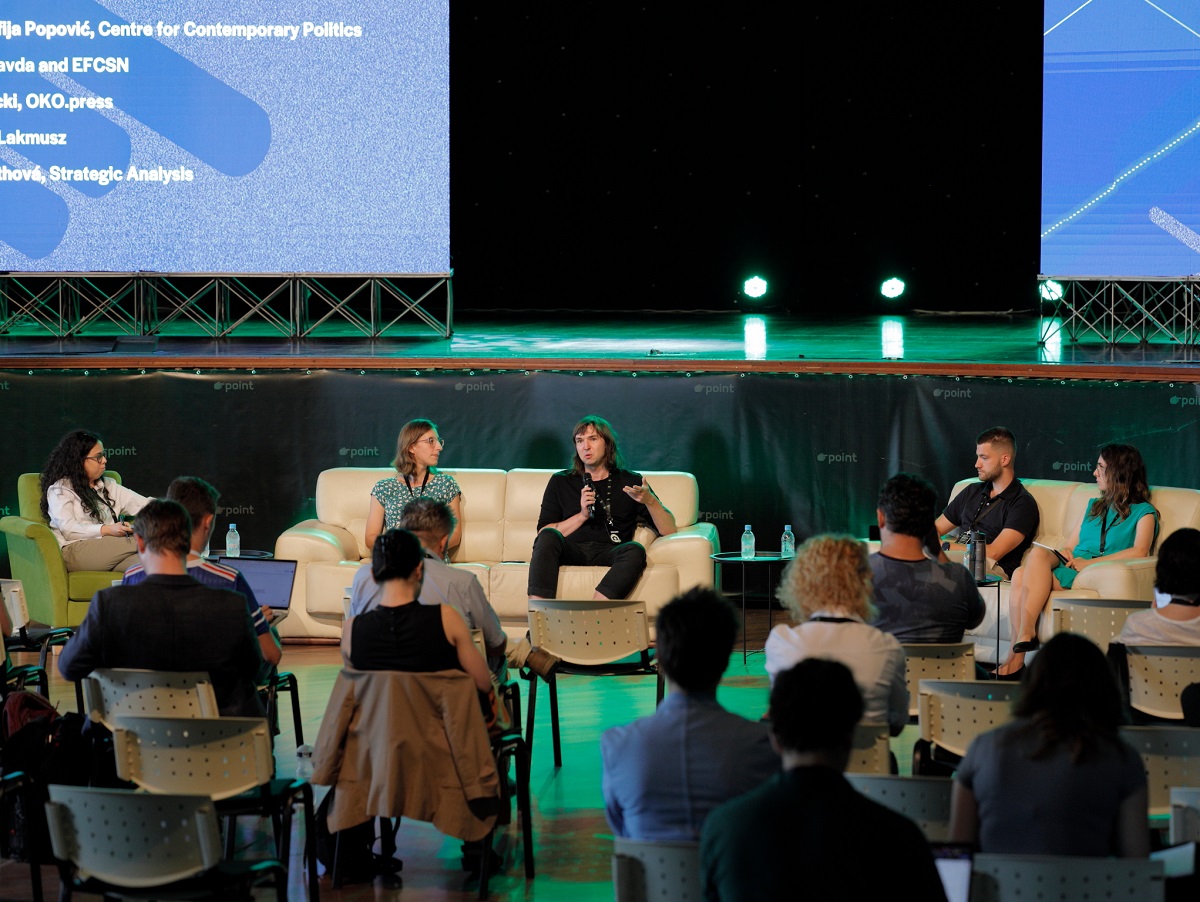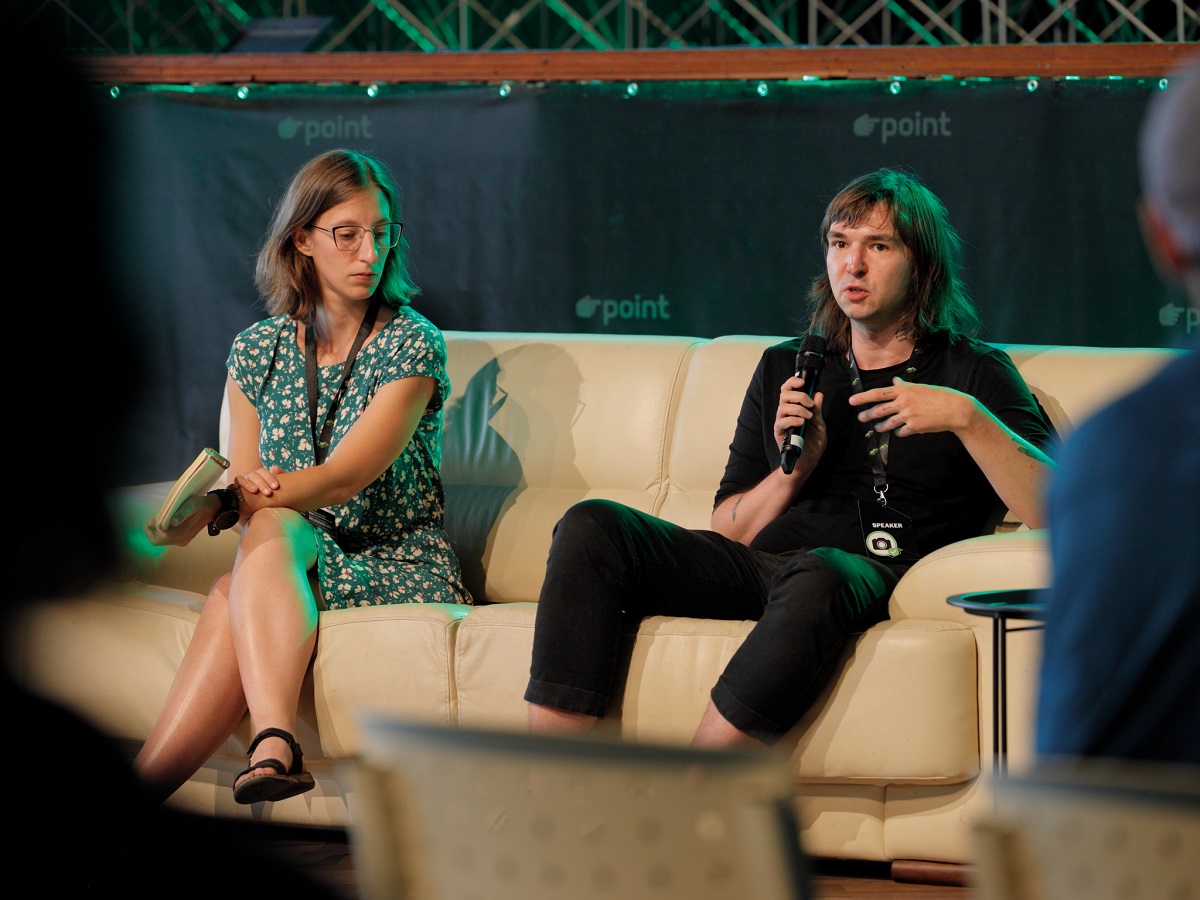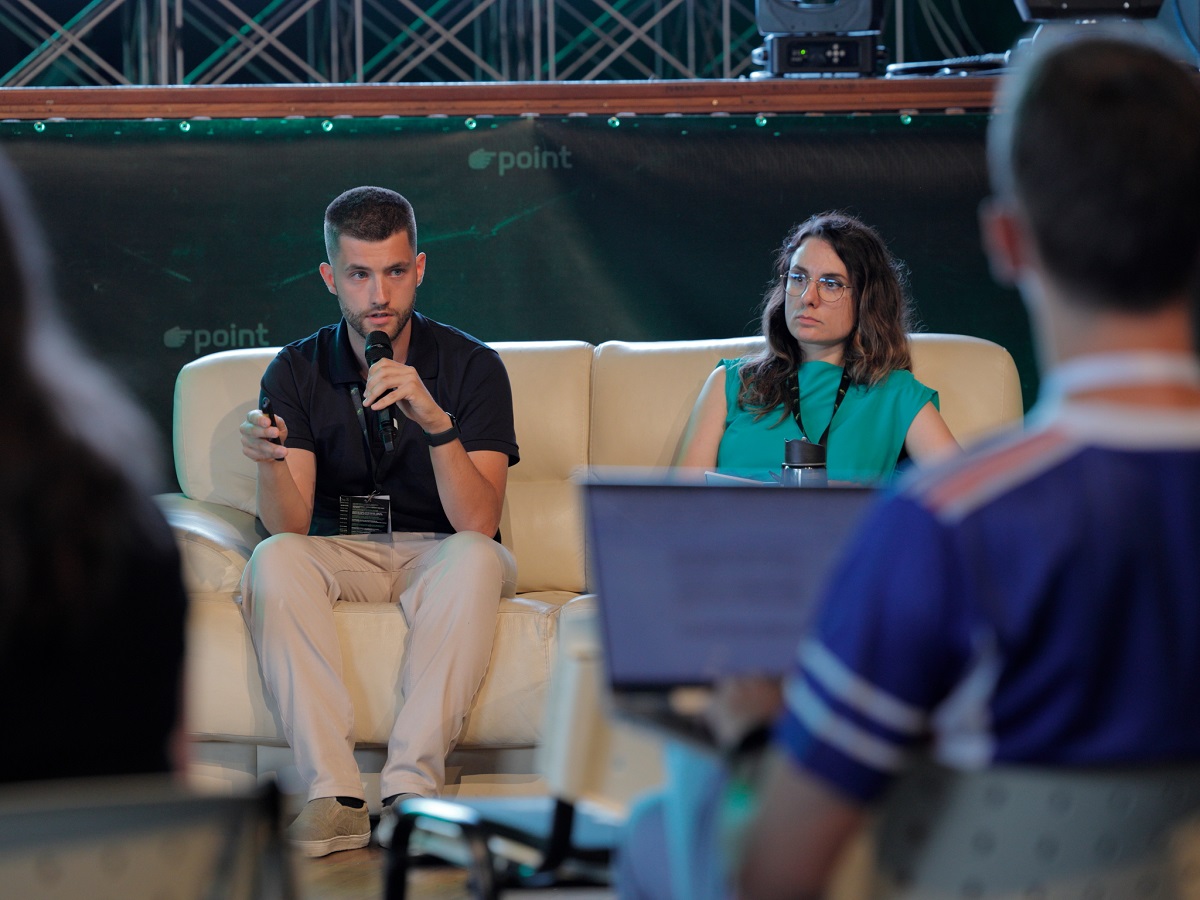EU Elections – What Happened and Why
Elections held around the world were one of the focal points of this year’s Point conference. The first panel on this topic dealt with the recently held European Parliament elections, significant for various reasons outlined by the panelists.

The panel, moderated by Sofija Popović from the Centre for Contemporary Politics, gathered speakers from three EU countries. Jakub Śliż (Pravda) and Maciek Piasecki (Polskie Radio) came from Poland, while Blanka Zöldi (Lakmusz) and Alexandra Tóthová (Strategic Analysis) joined from Hungary and Slovakia, respectively.
Hungarian fact-checking website Lakmusz carried out a project that analyzed political advertising during the campaign for the EU elections. As pointed out by Blanka Zöldi, Lakmusz advocates for the demonetization of disinformation by political actors and their affiliates. This is not an easy task considering that big tech platforms profit from the spread of disinformation, which Lakmusz has identified as a significant problem in Hungary. This is why they focused on researching how much big tech companies actually profit from sharing disinformation published by political entities.

Lakmusz’s efforts were aided by the existence of legislation such as the Digital Services Act and the EU Code of Practice on Disinformation, which require platforms to make their advertisement libraries publicly available. Lakmusz monitored who spent what money on the platforms and analyzed the misleading and false claims, tallying up all the money spent on promoting these. The main takeaway was that parties used hostile narratives which could be partly true but hard to fact-check, creating a narrative aiming to demonize political opponents. The government and its proxies spent four times more money on Facebook and Google than 15 other parties combined. Lakmusz created 46 fact-checks found in advertisements that used more than €500,000.
In the run-up to the EU elections, a Polish fact-checking and media literacy organization, Pravda, co-created a database that gathers and categorizes fact-checked information for European countries. The project was established in collaboration with 46 European fact-checking organizations and the European Fact-Checking Standards Network.
Details about the project were shared by Pravda’s founder Jakub Śliż, who pointed out that members gathered and shared data on fact-checks, debunks, and prebunks related to Europe and the EU elections. It was aided by generative AI tools, creating a Google-esque search engine for different narratives. Members were able to create and read narrative reports, further detailing disinformation trends and counterstrategies. The platform collected 2,579 articles in its database, and more importantly, 88% of fact-checkers said the project is useful for them in everyday fact-checking tasks.

Maciek Piasecki from Polskie Radio shared the Polish experience on cybersecurity in the country and the narratives during the EU election campaign. Despite the new government in Poland, the main narratives regarding the EU have not fundamentally changed, as both regimes have shown anti-immigration tendencies in their discourse. A couple of days before the European Parliament elections, pro-Russian attackers struck a Polish state news agency, publishing articles falsely claiming there would be a draft of Polish citizens for the war in Ukraine. The aim of the pro-Russian cyber-attacks, as pointed out by Piasecki, was to destabilize public opinion leading to the elections.
On a positive note, Piasecki explained that there have been breakthroughs in improving political pluralism in Polish media. He pointed out that in the October 2023 parliamentary elections, 70% of airtime was devoted to presenting the ruling party’s narrative, while for the EU election they only got 30% of airtime, not more than the main opposition party, which is seen as a major improvement.
Alexandra Tóthová from Strategic Analysis stated that Slovakia is one of the most Eurosceptic countries in the EU, with society being extremely polarized in the run-up to the EU elections, which was exemplified by the ruling party’s accusations that the opposition was behind the assassination attempt on Prime Minister Robert Fico on May 15. In the election campaign, the government deployed narratives that blamed the EU for the longevity of the war in Ukraine, advocating for the reduction of Slovakian funding for the war. Tóthová suggested that this can be dangerous for the EU because the Eurosceptic regime in Slovakia, coupled with the one in Hungary, presents dangers for overall EU support in the region.
Tóthová also advocated for an increased EU effort to tackle disinformation in Slovakia, which should focus on strengthening the capacity of fact-checking civil society organizations, which are currently underfunded.
The panel was concluded by Pravda’s founder Jakub Śliż’s comments that EU support for projects like the EFCSN is vital to battle disinformation in Europe, as it provides a means for communication for the accountability of big tech platforms, which is why the EU must continue being a strategic partner in these endeavors.
Author: Emir Velić